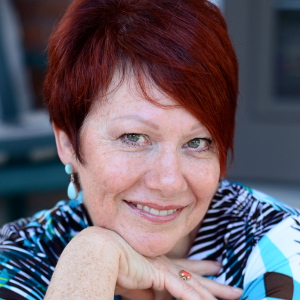 How many times have we all heard that old saw “write what you know”? What does that even mean?
How many times have we all heard that old saw “write what you know”? What does that even mean?
Many take this as advice to write only about our areas of expertise, what we have studied, where we have been. The implication is that if we are not well versed in our subject matter that we will slip up somehow and that our ignorance cannot help but be revealed.
Granted, I would never attempt writing about nuclear energy, astronomy or mathematics. That would be sheer folly, as I know less than most five year olds about these areas. So, in that sense I suppose I, and others in similar positions, would do well to heed the rule. When we quote hard facts, or science, or even historical events we had best have our information on solid ground. Otherwise we will end up with egg on our faces. Our readers, often more knowledgeable than we, will catch us up.
So I see where this is crucial for those of us who write non-fiction. To be credible we must have our facts straight. Our reputations will certainly depend on it.
But I write fiction. When I hear that rule, my thoughts take another direction. I do not think about facts, accuracy of information beyond what is needed to be believable. The question then remains, “How does ‘write what you know’ apply to me, if at all?”
What comes immediately to my mind is to ask “How can we possibly write something other than what we know”? When ‘they’ say ‘write what you know’ this is what I take it to mean – that we infuse our writing with our experiences and analyses of the human condition and how we react to events, people, places and situations. We cannot do otherwise or our writing would become sterile and lifeless. Our plot and characters may be fictitious but the skill with which we bring them to ‘life’ makes them real. They resonate with the reader because we have found an authenticity with which to clothe them. That authenticity can only come from our personal understanding – in effect ‘what we know’.
The only tools we have at our disposure that can bring our characters to life is ‘what we know’. We cannot do otherwise. Even in Fantasy and Science Fiction I believe that the images we describe, however fantastical, which we claim are created from our imaginations, are limited by some connection to our experiences of our world, and that the reader must come to share that understanding at some level or the writing will not touch them. No matter how foreign the society, how alien the race, how strange the culture, the behaviours we describe must not stretch the limits of our understanding, of our knowing so far that we can no longer identify with them.
I can think of nothing I have ever read that lacked this connection of understanding. Is it possible to write outside of that? I doubt it. That way lies madness. And perhaps, even in madness we still operate within ‘what we know’.
I’d love to be challenged on this. It’s something I have thought about for a long time.
* * * * *
Yvonne Hertzberger is a Contributing Author at Indies Unlimited and author of Back From Chaos and Through Kestrel’s Eyes, Books One and Two of Earth’s Pendulum, an Epic fantasy trilogy. For more information please see the IU Bio page and her blog at http:/yvonnehertzberger.com
[subscribe2]


I would amplify/clarify the "write what you know" statement with "write what you're passionate about" – heck, Einstein was able to turn a dull mathematics formula into the most widely recognized equations of all time! More people know the meaning of "E=mc2" than the formula to find the area of a triangle!
Lin Robinson has quite a bit to say about this.
Sometimes writing about what you know is risking abject boredom. One needs a bit of edge, so researching something you do NOT know makes a lot more sense.
A warp and weft of feelings, sensations and interactions one is familiar with, which take place in a new location (which must be visited) and involving a new kind of crime (which must be researched) all carried forward by a protagonist of some strange ilk (which must be devised, which you are good at, Yvonne) all make for writing that's interesting to do, and might prove engaging to the reader.
I have done a number of exercises writing about stuff I don't know – it can be an eye-opener, because it verses the writer in wily evasion of fact, cunning inclusion of distractions, and clever use of language to fox the reader into a state and pitch of enjoyment that does not invite close scrutiny.
I always laugh when I hear someone say, "Write what you know.". After all, I write murder! Mayhem! Blackmail! Ah, yes…lock me up, I guess. Does anyone really believe I've done any of that? Or, that I know anyone who has?
Gee, I hope now!
🙂
Make that not!
Coming from a counseling background, I think people misinterpret the "write what you know" advice along the lines you allude to, Yvonne. There's a distinction, if you'll forgive the therapy-speak, between process and content and I think the misunderstanding lies in people thinking it refers to content (the facts, the details, the nuts and bolts) whereas the advice works best when it refers to process (larger patterns, the milieu, the way things are done, or felt). Uh, I'm not expressing that very well, but basically I think you hit the nail on the head here: "that we infuse our writing with our experiences and analyses of the human condition and how we react to events, people, places and situations." "What we know" are the experiences, reactions, analyses and not the events themselves.
Seems to be some reactions here. And some different opinions. Exactly what I was hoping for.
In terms of information and facts I agree it is stimulating to research new areas. But David understood me perfectly when we write about behaviour and emotions.
Keep it coming. 🙂
Good post, Yvonne. I agree, it is a vastly misunderstood dogma.
Thanks.
I write poetry and say that, often, I am not the narrator. Poetry and other writing can share experiences of "self," but if it smacks of spiritual therapy, I move on. If it ……………………………..
cat on my keys…………resonates with controlled feelings, especially ones that push out from personal isolation, I linger and nod, "yes." It is, of course, possible to write beyond what you know…what you observe and know to be true. We are all connected.
Thanks Kay. Yes, we are all connected, which, in a way is what I was getting at. But I think that even when we write 'beyond what we know' it still connects to what we have experienced in some way. We manipulate it into something new and fresh, and even discover things along the way that we think are outside of us but at some level it is already there.
An example that comes to mind is the Star Trek series. The aliens all have traits that we recognize from history or what we know of human nature. The Klingon sense of honour is one. Perhaps it is the limits of my own imagination that leads me to think that even the great mystics and physicists get their inspirations by looking at what is already there in new unique ways.
I enjoy broadening my knowledge and interests. But I like to substitute "write what you know" with "write what interests you" because I hate the idea of limiting myself…
Yet if I stay within my comfort zone I may write more confidently and do a better job than if I have to wing it or fake it.
Good point – it can be a balancing act. I like the idea 'write what interests you".